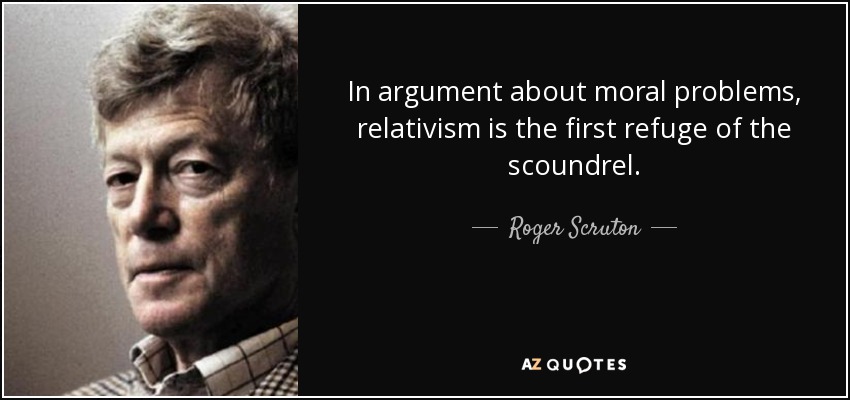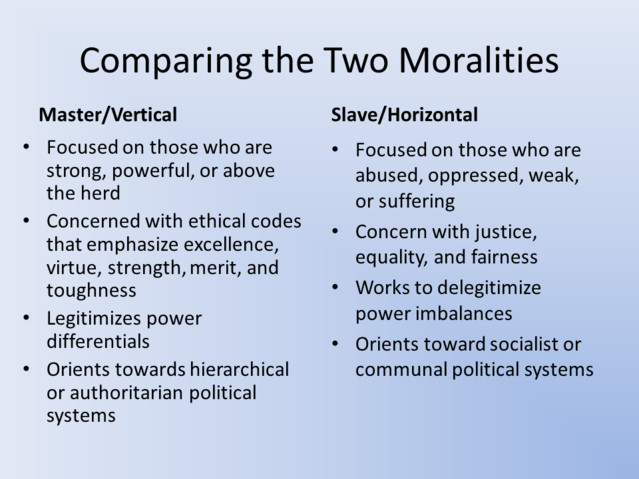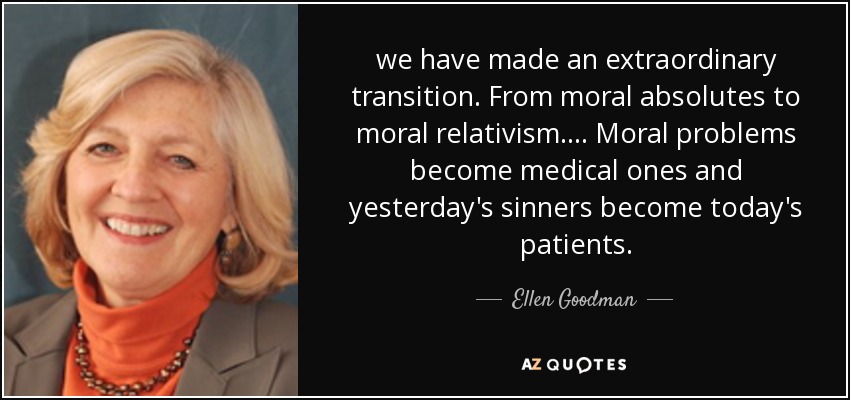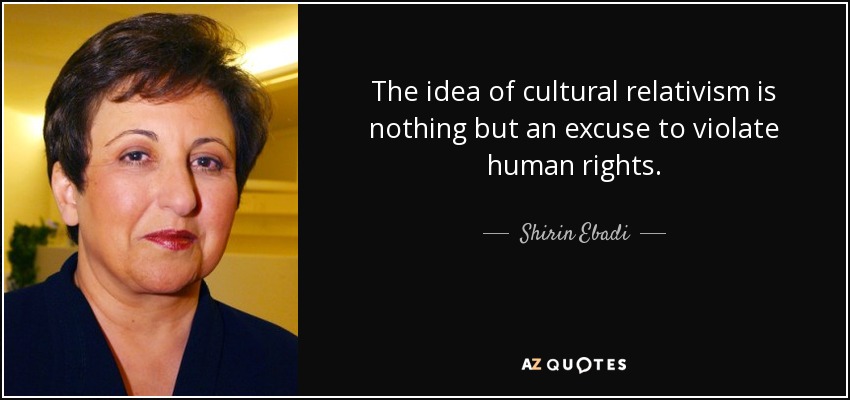
Wiki / Ethik
Inhaltsverzeichnis: (verbergen)

Artischocke – Tapete
|
|
Der Begriff Ethik stammt aus dem Griechischen. Er drückt die persönliche Einstellung zum Guten aus.
The term ethics stems from Greek. It expresses one's personal attitude to the good.
|
Der Amerikaner Jonathan Haidt ist Professor für Sozial-, Kultur- Moralpsychologie und ethisches Führungswissen hat zeitweilig Positive Psychologie an der Universität von Virginia unterrichtet. Im Jahr 2001 hat er den Templeton-Preis für Positive Psychologie erhalten, und im Jahr 2004 wurde er mit dem Virginia "Outstanding Faculty Award" ausgezeichnet.
Der in den Sechziger Jahren geborene Autor des Buchs Die Glückshypothese. Was uns wirklich glücklich macht ist ein weltlich gesinnter Atheist, politisch ein inzwischen mitte-links angesiedelter Demokrat, der dem althergebrachten Wissen
von jeher großen Respekt entgegenbrachte.
| ||||||||||||||||||||||||||||||||||||||||||||||||||||||||||||||||||||||||||||||||||||
| Video Referenz (engl.): ► Video Fernsehinterview mit Dr. Jonathan Haidt (*1963) US-amerikanischer Professor für Sozial-, Kultur-, Moralpsychologie und ethisches Führungswissen, New York University Stern School of Business, Autor, Jonathan Haidt Explains Our Contentious Culture, präsentiert von der Fernsehshow Moyers & Company, Gastgeber Bill Moyers (1934-2025) US-amerikanischer politischer Kommen- tator, Journalist, YouTube Film, 47:09 Minuten Dauer, eingestellt von TheEthanwashere, 13. Juni 2012 |
| Folgebuch: ► Dr. Jonathan Haidt (*1963) US-amerikanischer Professor für Sozial-, Kultur-, Moralpsychologie und ethisches Führungswissen, New York University Stern School of Business, Autor, The Righteous Mind. Why Good People are Divided by Politics and Religion, Vintage, 2012, reprint edition 12. February 2013 |
| Referenz: de.Wikipedia-Eintrag ► Moral Foundations Theory |
| Siehe auch : ► Politik und ► Kultur und ► Politik |
| See also : ► Six pillars of morality – Jonathan Haidt |
|
| ||||||||||||||||||||||||||||||||||||||||||||||||||||||||||||||||||||||||||||||||||||||||||||||||||||||||||||||||
| Quelle: ► Weitgehend zitiert aus: Kognition, Sprache, Persönlichkeit, IIM Universität Gießen |
| Referenzen: ► Tabelle Stufenmodell des moralischen UrteilsLawrence Kohlberg (1927-1987), präsentiert von der Publikation jugendarbeit.ch, Peter Marti, Zürich-Wipkingen, 2011 ► Lehrvideovortrag Kohlbergs Theorie zur moralischen Entwicklung, Sprouts Deutschland, YouTube Film, 7:39 Minuten Dauer, eingestellt 25. Juni 2020 |
| Referenzen: de.Wikipedia-Einträge ► Urheber: Lawrence Kohlberg (1927-1987) US-amerikanischer Professor für Erziehungswissenschaft und Psychologe ► Theorie: Kohlbergs Theorie der Moralentwicklung |
| Siehe auch: ► Stufenmodelle |
|
|
| |||||||||||||||||||||||||||||||||||||||
| Quelle: ► Dr. Carol Gilligan (*1936) US-amerikanische Professorin für Genderstudien, Feministin, Psychologin, Ethikerin im Bereich Gemeinschaft und Beziehung, Autorin, Die andere Stimme. Lebenskonflikte und Moral der Frau, Deutscher Taschenbuch Verlag (dtv), München, 1996 |
| Video references featuring Carol Gilligan, Ph.D. (*1936) US American professor of gender studies, psychologist, feminist, ethicist (community, relationships), writer ► Video interview Women and Moral Development, presented by the US American web portal Big Think, transcript included 6:29 minutes duration, 27. February 2009 ► Educative video Gilligan – Theory of Women's Moral Development, presented by The College Student, Emily Abrams and Julia Smith, issued 20. October 2014, YouTube film, 5:54 minutes duration, posted 13. October 2014 ► Educative video Carol Gilligan's Theory of Moral Development, presented by the Educational Portal, narrated by Melissa Hurst, Ph.D., YouTube film, 7:00 minutes duration, posted 12. January 2016 |
| Siehe auch: ► Stufenmodelle und ► Frauen / Frauen und ► Männer und ► Gerechtigkeit und ► Ganzheit und ► Phönix |
Der englische Jurist, Philosoph, Sozialreformer Jeremy Bentham (1748-1832) war ein Vordenker des modernen Wohlfahrtsstaats. Er gründete den klassischen Utilitarismus, demzufolge eine Handlung auch ethisch hinsichtlich ihrer Nützlichkeit zu bewerten ist. Es gilt, das Glück Einzelner zum Wohl der Allgemeinheit zu maximieren und das Unglück zu minimieren. Das utilitaristische Prinzip erkennt die Legitimität des Tyrannenmords und benennt die moralische Pflicht der Zeitgenossen, den Diktator Adolf Hitler zu töten, um weiteres Leid zu verhindern.
|
Persönliche Bekenntnisse
1943 wurde Sophie Scholl zusammen mit ihrem Bruder Hans beim Austeilen von Flugblättern in der Münchener Universität verhaftet. Vier Tage später wurden beide wegen "Hochverrat" und "Wehrkraftzersetzung" mittels einer Guillotine enthauptet.

Hammarskjöld starb am 18. September 1961 bei einem ungeklärten Flugzeugabsturz. Kurz nach seinem Tod erhielt er den Friedensnobelpreis.
Schlussfolgerungen
Einsicht
Siehe auch: H.H. 14. Dalai Lama, Alexander Norman, contributor, Beyond Religion. Ethics for a Whole World, Mariner Books, 2011, reprint edition 6. November 2012
|
Selbstachtung, Umwelt und Erziehung
|
Personal avowals
Hammarskjold died on 18. September 1961 in an unexplained plane crash. Shortly after his death, he received the Nobel Peace Prize.
While attending a conference on OTC swaps and forwards in Toronto former German fonds manager of OFT food speculation and chief of 27-50 staff members, Margarete Wegener, at Deutsche Bank in Frankfurt am Main was haunted by images of hunger at night. Following her conscience she left her criminal profession and made a public confession and moral reversion.
New World Order agenda – social engineering
|


German nihilist philosopher Friedrich Nietzsche's paraphrased quote: "Reality is that which has the combative vigor to assert itself."

Empathy is expressed via
a) the body channel: as the ability to understand and share the feelings of another and
b) the cognitive channel: as the ability to take the perspective of another.

Cultural brain ⇔ moral immune system
|

| ||||||||||||||||||||||||||||||||||||||||||||||||||||||||||||||||||||||||||||||||||
| References featuring Jonathan Haidt, Ph.D. (*1963) US American professor of social, cultural and moral psychology and ethical leadership, New York University Stern School of Business, author ► Video TV interview Jonathan Haidt Explains Our Contentious Culture, presented by the US American TV show Moyers & Company, host Bill Moyers (1934-2025) US American political commentator, journalist, YouTube film, 47:09 minutes duration, posted by TheEthanwashere 13. June 2012 ► Followup book: The Righteous Mind. Why Good People are Divided by Politics and Religion, righteousmind.com, Pantheon, 1st edition 13. March 2012, reprint edition 12. February 2013 |
| Reference: en.Wikipedia entry ► Moral Foundations Theory |
| See also: ► Culture and ► Control and ► Politics |
| Siehe auch: ► Sechs Säulen der Ethik – Jonathan Haidt |
| ||||||||||||||||||||||||||||||||||||||||||||||||||||||||||||||||||||||||||||||||||||
| Originator: ► Lawrence Kohlberg (1927-1987) US American professor of psychology best known for his theory of stages of moral development, University of Chicago |
| Reference: en.Wikipedia entry ► Stages of Moral Development |
| See also: ► Evolutionary models of integral thought leaders – Maturing the ego ► Pyramid of needs – Abraham Maslow ► Step models and ► Conscience and ► Relativism |
| ||||||||||||||||||||||||||||||||||||||
| Video references: ► Video presentation by professor Miller, WMiller25, Kohlberg's stages of moral development, YouTube film, 9:25 minutes duration, posted 28. March 2008 Brief description of Lawrence Kohlberg's theory of moral development ► Video presentation Kohlberg Stages of Moral Reasoning, YouTube film, 5:42 minutes duration, posted 26. May 2009 |
| Reference: ► Note by D. Davis, US American emeritus professor of psychology, Haverford College, University of Minnesota, Kohlberg Dilemmas, presented by Haverford College, undated |
|
|
| |||||||||||||||||||||||||||||||||||||||
| Video references: ► Video interview with Carol Gilligan, Ph.D. (*1936) US American professor of gender studies, psychologist, feminist, Women and Moral Development, presented by the US American web portal Big Think, transcript included, 6:29 minutes duration, posted 27. February 2009 ► Educative video Gilligan – Theory of Women's Moral Development, presented by The College Student, Emily Abrams and Julia Smith, issued 20. October 2014, YouTube film, 5:54 minutes duration, posted 13. October 2014 ► Educative video Carol Gilligan's Theory of Moral Development, presented by the Educational Portal, narrated by Melissa Hurst, Ph.D., YouTube film, 7:00 minutes duration, posted 12. January 2016 |
| Literature: ► Carol Gilligan, Ph.D. (*1936) US American professor of gender studies, psychologist, feminist, ethicist concerned with issues of community and relationship, writer, In a Different Voice. Psychological Theory and Women's Development, 1982, Harvard University Press, revised edition 1. July 1993 Recension: "...the little book that started a revolution" |
| Reference: ► Notes on In a Different Voice by Carol Gilligan, presented by Allen Cypher's Book Notes page, undated |
| See also: ► Step models and ► Women / Women and ► Men and ► Justice and ► Wholeness and ► Phoenix |
| ||||||||||||||||||||||||
| Literature: ► James Gilligan, M.D., Ph.D., US American psychiatrist, violence expert, author, Why Some Politicians Are More Dangerous Than Others, Polity, 1st edition 2. August 2011 |
| Reference: ► Avi Tuschman, Ph.D., US American professor of evolutionary and political anthropology, Stanford University, senior writer to Peruvian president Alejandro Toledo (2001-2006), Our Political Nature. The Evolutionary Origins of What Divides Us, Prometheus Books, 3. September 2013 Political orientations (left-right voting) arise from three clusters of measurable personality traits i.e. opposing attitudes toward (1) tribalism: ethnocentricity vs. ethnophilia, in-grouping vs. individualism (2) human nature: competitiveness vs. cooperation, (fundamentalist) religiosity vs. secularism, (3) tolerance of inequality: rankism, sexism, racism, classism. Conservatives are more rankist, sexist, racist, and homophobic religious than liberals. |
| See also: ► Politics of poverty and violence – Pride-guilt-shame culture of socio-economic status in the United States ► Three historic periods of human development including two normative turning points – Evelin Lindner ► Seven deadly sins ⇔ Seven heavenly virtues |
 The Republican politician Newt Gingrich said recently that the two political parties [in US] represent different cultures. [...] I think he was right about that, they do represent different cultures. I would describe the Republican Party as representing what anthropologists have called a shame culture or a shame and honor culture where the moral ethos from the highest good to the worst evil goes from honor to shame. |
| ||||||||||||||||||||||||||||||||||||||||||||||||||||||||||||||||||
| Reference: ► Unnamed article on Sioux legends, originally presented ed by newspaper Inter-Tribal Times, October 1994 |
Links zum Thema Ethik und Moral / MoralityLiteratur
Literature (engl.)
Kohlberg's and Keagan's models
Externe Weblinks
Taleb, der Wahrscheinlichkeitsrechnung mit antiker Philosophie verbindet, fordert die Rückkehr zur traditionellen Weisheit . Er klagt er all jene unmoralischen Politiker, Trader und Intellektuellen an, die für Entscheidungen kein Risiko eingehen.
Linklose Artikel
External web links (engl.)
300 peer-reviewed studies state "Morality matters when it comes to leadership." Linkless articles
Audio- und Videolinks
Das menschliche Leben wird immer mehr von selbstlernenden Computern bestimmt. Nach welchen menschlich vorherbestimmten Regeln handeln die Algorithmen? Der Markt entscheidet, welche Algorithmen sich durchsetzen. Deep Learning Computer schlagen Go-Spieler.
Audio and video links (engl.)
Discussing the five (six) foundations of morality
Discussing the importance of stubbornness and collaboration in problem-solving, the 10,000 hours of practice to master any challenge, example given by role model Andrew Wiles
Brief description of Lawrence Kohlberg's theory of moral development
Short Intro to ethics and business ethics
Emphasizing the importance of compassion
Definition of virtue, discussion on how to live life with moral intelligence
Linkless media offerings
Reflecting on leadership and the future
|
Englisch Wiki
Hawkins